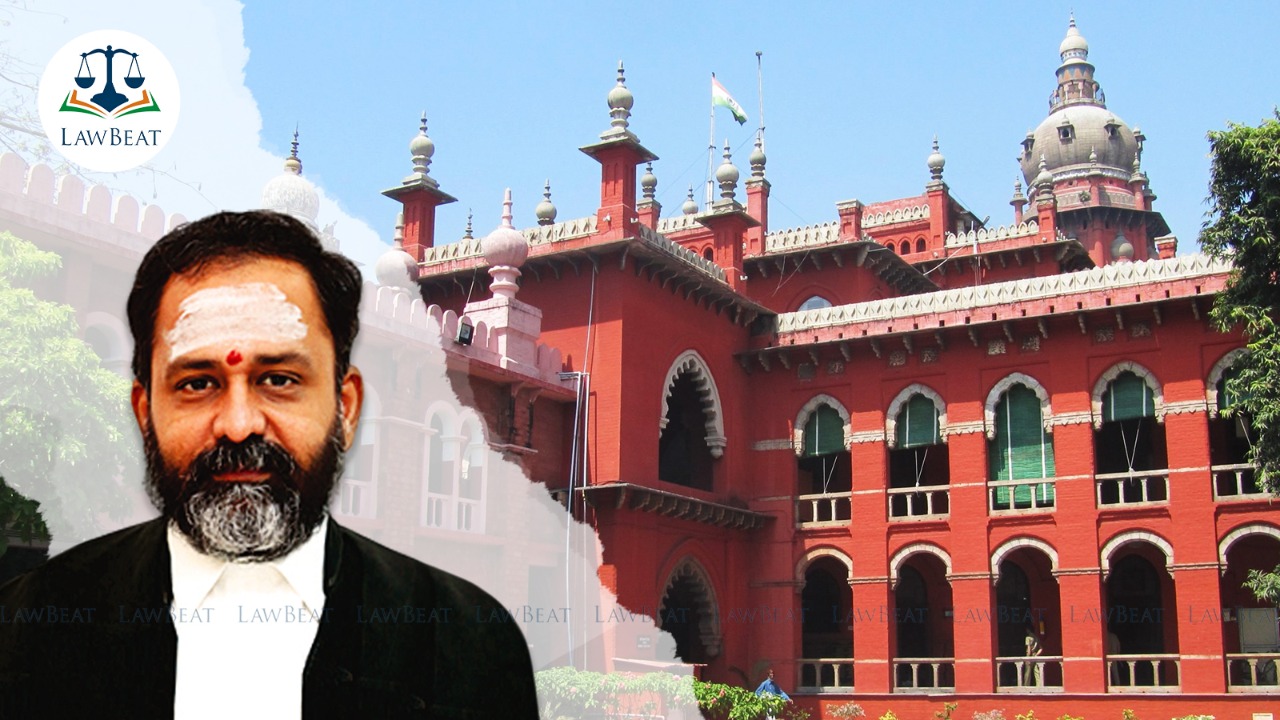"Strident criticism is permissible, not defamatory vilification": Justice Swaminathan of Madras HC initiates contempt against 'Savukku' Shankar

According to the contempt order, the tweet implies that Justice Swaminathan was influenced when he quashed an FIR in December 2021 against YouTuber Maridhas.
Justice G R Swaminathan, judge, Madras High Court took suo motu cognizance of alleged activist ‘Savukku’ Shankar for criminal contempt of court over his tweet against him.
According to the contempt order, the tweet implies that Justice Swaminathan was influenced when he quashed a First Information Report (FIR) in December 2021 against YouTuber Maridhas.
Shankar, in the Tweet, questioned the judge as to whom he had met at 6 am in Alagar temple in Madurai, while hearing Maridhas’ case. The order reads, “By this innuendo, Thiru.Shankar is suggesting that the outcome of the Maridhas case was influenced by the person I am alleged to have met. This is clearly scandalising the judiciary. Prima facie Thiru.Shankar had committed criminal contempt.”
Justice Swaminathan, in the order, has stated that he believes in freedom of speech and expression, however, Shankar has crossed the ‘Lakshman Rekha. The Judge has stated that while he felt that Shankar can pass any comments on his judgments, his tweet questioned his integrity by using undesirable words.
The order notes, “He (Shankar) is unsparing in his attack on individuals and institutions including the judiciary. While even strident criticism is permissible, defamatory vilification is not.”
Justice Swaminathan has expressed that Shankar has been focusing his gaze on him for the last several months. The judge noted that Shankar had commented on many of his judgments in the most uncharitable language and his attacks have often been personal.
The judge has said that since he is a strong believer in upholding freedom of speech and expression, he did not pay heed to them, however, his latest tweet has crossed the limits.
The contempt order, notes that Shankar is a You-Tuber, blogger and a commentator on current affairs who gives regular interviews to various channels on social media while Maridhas is a well known YouTuber as well.
It notes that petitions were filed to quash two criminal cases against Maridhas and the same was assigned his bench owing to the roster he was holding. The case against Maridhas was for his tweet saying that the Dravida Munnetra Kazhagam (DMK)-ruled Tamil Nadu will soon turn into another Kashmir. Justice Swaminathan, has recorded in the order that he quashed the proceedings after hearing both the sides.
The order notes that Shankar has a sexual harassment case pending against him for more than 10 years and he was informed that nothing has transpired in a case where the Central Bureau of Investigation (CBI) is conducting investigation.
Shankar was employed in the Directorate of Vigilance and Anti Corruption as a ministerial staff is said to be getting Subsistence Allowance for several years. The order notes, “A person who is getting paid by the State without doing any work has the audacity to mock at a Judge who feels he must justify every paise that he gets from the exchequer.”
According to the Hindustan Times, Shankar was a former clerk in the Tamil Nadu’s Directorate of Vigilance and Anti-Corruption (DVAC). He was arrested by the then DMK government in 2008 for leaking an audio tape of two top officials. After his release, he turned into a whistle-blower. He launched a website in 2009 called Savukku, meaning whip, where he exposes corruption and writes about government officials, politicians, journalists, lawyers and high court judges. His leaks include tapes related to the sensational 2G spectrum allocation scam.
The judge, has also impleaded social media intermediaries such as Facebook, Twitter and You-Tube in the petition and has directed the compliance officer to file an affidavit in this regard. The affidavit must contain details of complaints received by them against Shankar so far. The court has directed Shankar to appear in person on the next date of hearing.
